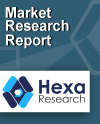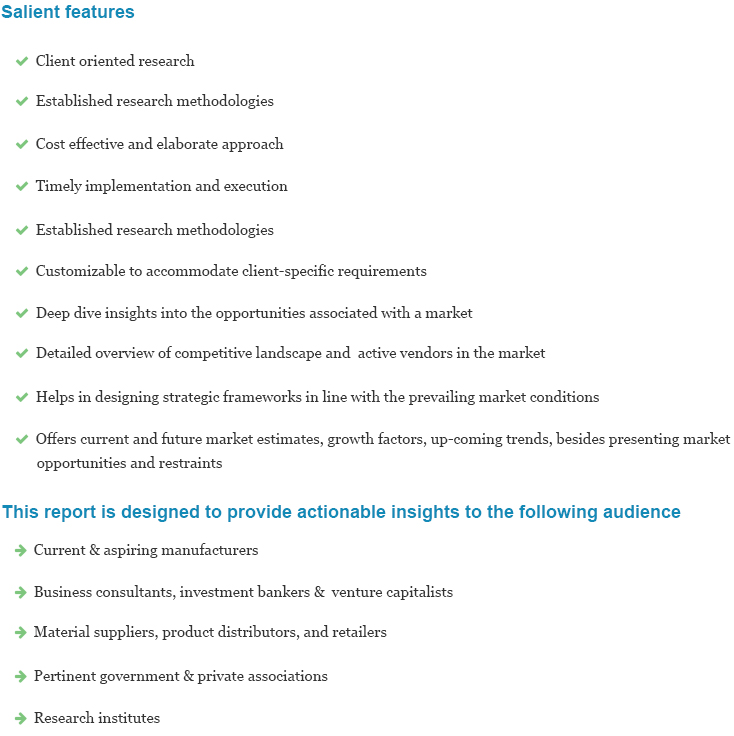
Fuel Cell Market Size, Share, Growth, Application Analysis, Regional Outlook, Competitive Strategies and Forecasts, 2015 To 2025
- Published: January, 2019
- Format: Electronic (PDF)
- Number of pages: 70
- Industry: Renewable Energy
The global fuel cell (FC) market is expected to exhibit solid growth on account of rising demand for unconventional energy sources. Growing awareness of clean energy is boosting the growth of alternative energy sources. Benefits of these cells, such as eco-friendliness, better efficiency, and durability, are expected to increase its adoption in the coming years. High demand for portable devices and increasing applications in the transportation sector are expected to increase product demand in the coming years. Strict government policies to minimize pollution levels are also expected to bode well for the market.
Deployment of FCs in electrical vehicle (EV), hybrid electric vehicle (HEV), and plug-in hybrid vehicle (PHV) are expected to drive the market in the coming years. Government across the world are encouraging use of EVs due to rising carbon emissions. Increasing number of hydrogen infrastructures are also likely to increase the adoption of FCs in vehicles. Use of these devices can reduce dependency on petroleum products, such as oil and diesel, which have increased environmental concerns due to their excessive emissions of CO2, CO, NOx, and Sox.
Development of regenerative fuel cells as an alternative to rechargeable is likely to influence market growth positively. These products can be refueled within shorter period than conventional batteries. A Regenerative Fuel Cell System (RFCS) based on hydrogen and oxygen comprises a storage system for a fuel cell, reactants, and an electrolyser. These components can act as a rechargeable battery with this combination. Regenerative devices play a key role in the development of distributed energy system. Techno-economic advantages of distributed power generation system can have a positive impact on market growth.
However, issues about sourcing raw material can restrict market growth.
Fuel cell is implemented in various applications, such as stationary, transportation, and portable. Stationary hydrogen power plant is anticipated to emerge as the leading application due to its flexibility to use different fuels and better efficiency. Key product types of FCs include Molten Carbonate Fuel Cells (MCFC), Solid Oxide Fuel Cells (SOFC), and Phosphoric Acid Fuel Cell (PAFC).
North America is expected to witness robust growth in the years to come. The U.S. is a key contributor to regional growth due to increasing demand for such electrochemical cells, which could be attributed to rising acceptance of clean energy solutions. The CO2 emissions per capita of the country is very high. The U.S. government provides better incentives for the development of this technology. As per Department of Energy (DOE), these products are cost competitive with other options. Asia Pacific is likely to exhibit high CAGR in the coming years due to increasing applications in stationary power. High demand for SOFC in automotive, commercial and residential, and telecom industries can boost market growth in the coming years. Commercialization of SOFC systems has begun with specific niche markets, such as small-scale combined heat power (CHP), in Japan.
Some of the leading companies operating in the fuel cell market are EnerFuel Inc.; Fronius International GmbH; SEC Industrial Battery Co.; Greenlight Innovation; and Powercell Sweden AB. Players are focusing on the development of innovative products. For instance, Seven-Eleven Japan Co., Ltd. (Seven-Eleven) and Toyota Motor Corporation (Toyota) declared the news about their joint project for reducing CO2 emissions. The Toyota has been exploring the use of newly developed fuel cell trucks and fuel cell generators, and the project is anticipated to be executed in 2019. The project aims to launch technologies and systems developed by Toyota in Seven-Eleven store operation and distribution, reducing CO2 emissions. Stationary FC generators and rechargeable batteries are likely to be launched at stores, managed centrally by building energy management systems (BEMS). It also aims to increase the proportion of renewable energy and electric power derived from hydrogen.
Companies are also forming strategic partnerships and agreements to gain a competitive edge in the market. For instance, Nuvera Fuel Cells, LLC, a provider of FC power solutions for motive applications, signed a cooperation agreement with the Hangzhou district government of Fuyang, in Zhejiang province, China. This agreement is initiated to allow the local manufacture of Nuvera fuel cell stacks.

Choose License Type
- World's largest premium report database
- Transparent pre & post sale customer engagement model
- Unparalleled flexibility in terms of rendering services
- Safe & secure web experience
- 24*5 Research support service
